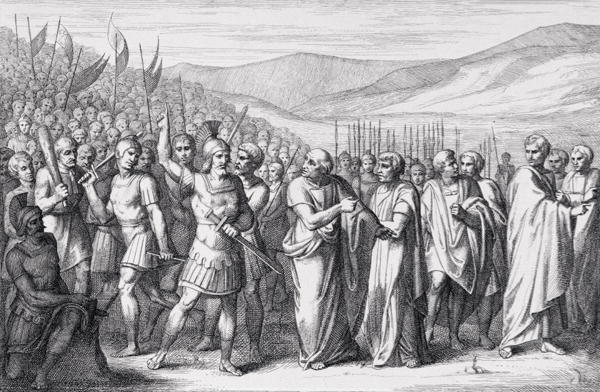TWIL #06: From walking away to invading Iceland

The power of walking away
In ancient Rome, the Secessio Plebis was a weapon of the people. One that didn’t rely on violence or rebellion, but on absence. The plebeians, Rome’s working class, were essential to the city’s survival. They built, farmed, fought in wars, and kept everything running. But they had little political power, and when their grievances were ignored, they used the only leverage they had: themselves.
They simply left the city.

Entire groups of plebeians abandoned the city, retreating to nearby hills and refusing to work, enlist, or contribute in any way. The elite, suddenly without labor, food production, or soldiers, had no choice but to negotiate.
The result? Concessions. The creation of the Tribune of the Plebs, an office meant to protect the rights of the lower class. A reminder that no system, no empire, functions without the people.
How often do we underestimate the power of simply walking away?
Prices keep climbing. Except for Coca-Cola (For 70 Years, at Least)
Supermarket prices in the Netherlands are out of control. Every week, something costs more. Eggs, cheese, pasta… nothing is safe. Prices have always gone up and down, but lately, it feels like they only go one way: up.
But this week I discovered something interesting. Coca-Cola… For 70 years, from 1886 to the mid-1950s, a bottle of Coke stayed locked at five cents. No inflation, no supply chain excuse, no sudden jumps. Everything else moved, but Coke didn’t. Only after decades of pressure did the price finally change. Compare that to today, where a single product can have ten different prices depending on the store, the day, or even an algorithm.

So why could one company hold a price steady for 70 years while everything else has always been so unpredictable? And if they managed it, why can’t anyone else?
The British invasion of Iceland

In one of the most surreal moments of World War II, Britain launched Operation Fork, the invasion of Iceland. But this wasn’t a battle of guns and trenches. It was a race against the Nazis, who eyed the island as a potential U-boat base.
Determined to keep the North Atlantic free, British forces stormed ashore in 1940… to find absolutely no resistance. Iceland, a neutral nation with no army, woke up to Royal Marines wandering its streets, politely asking officials to surrender.
The only casualty? A single British Marine who tragically took his own life en route.
Nike’s campaigns: Marketing or meaningful change?
Nike’s So Win! campaign, launched during Super Bowl LVIII, celebrates and empowers female athletes. Narrated by rapper Doechii, the ad challenges biases in women’s sports with a bold message: "You'll be told you can't do it. So do it anyway. You can't win. So win."
Nike has long used its platform for activism. From If You Let Me Play in the 1990s to Dream Crazier with Serena Williams, the brand has consistently pushed for inclusivity. Campaigns like Equality and Believe in Something took strong stances on social justice, while You Can’t Stop Us highlighted resilience and unity.

Nike doesn’t just talk the talk. It walks the walk. Beyond these campaigns, the company invests directly in women’s sports through initiatives like the Nike Athlete Think Tank, WNBA equity investments, and first-of-their-kind partnerships with female teams. They've funded millions to increase girls’ access to sports and adapted policies after athlete advocacy, proving their commitment goes beyond messaging. While not without controversy, Nike continues to shape the future of women’s sports with action, not just ads.
Some more stuff
- Honey never spoils – Archaeologists have found 3,000-year-old honey in Egyptian tombs that is still perfectly edible. This enduring quality is due to honey's low water content and high acidity, creating an environment inhospitable to bacteria and microorganisms.
- Headless chicken — In 1945, a Wyandotte rooster named Mike became famously known as "Miracle Mike" after surviving a botched beheading by farmer Lloyd Olsen in Fruita, Colorado. The axe missed the jugular vein and left most of Mike's brain stem intact, allowing him to maintain basic motor functions. (There are photos on the internet, but I will let you decide whether you want to see these)





